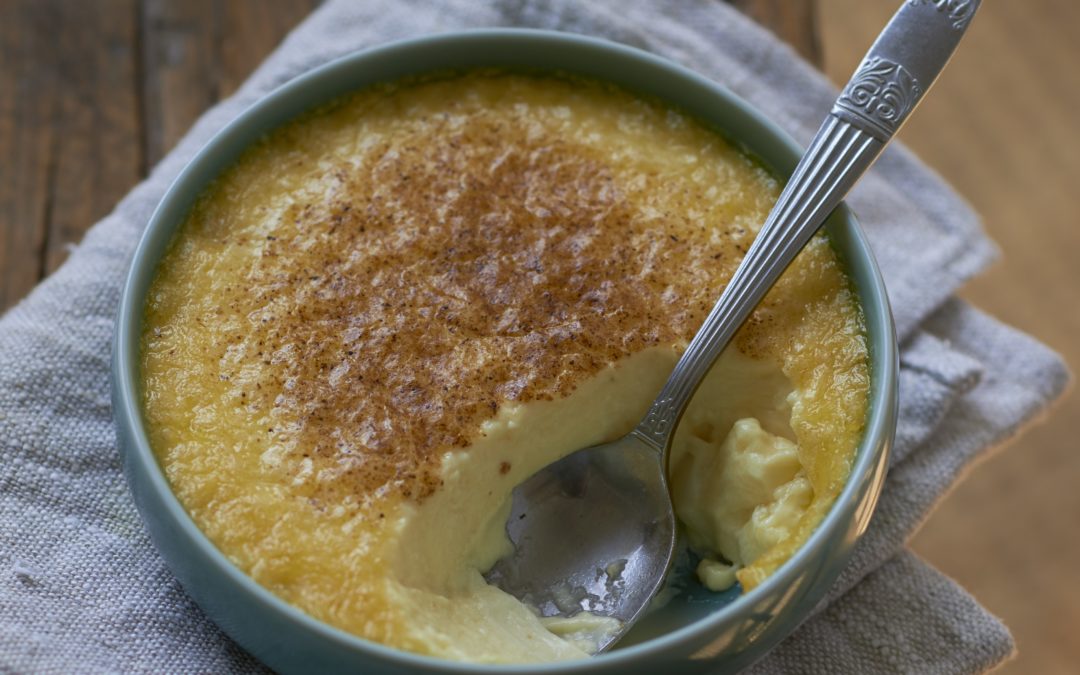Do you think cholesterol is bad for you? Do you carefully watch your fat intake? Especially saturated fat? Understandable because that is what we have all been told. But the latest research shows that the world’s most hated substance is actually good for you.
Don’t take my word for it. Here are some of the experts who kindly granted me permission to reprint their quotes in The Fat Revolution Cookbook:
The much-maligned saturated fats—which Americans are trying to avoid—are not the cause of modern diseases. If they were, and if the saturated fat or cholesterol myth were true, none of us would be alive today because saturated fat was the primary energy source for most of our ancestors. Studies of North American Indians, Eskimos, and other tribes suggest that as much as 80% of their daily caloric intake was from fat, most of which was saturated animal fat. Paul Chek, How to Eat, Move, and Be Healthy!
So what is it about [saturated fat] that is so deadly? Frankly, I’m the wrong person to ask, because I don’t happen to think that saturated fats are in any way damaging or dangerous. If they were, they wouldn’t taste so damn delicious. Nature tends to warn us off dangerous foods by making them taste bitter or icky. Or giving them a bright-red colour. Dr Malcolm Kendrick, The Great Cholesterol Con
Based on information [supplied by the mainstream health industry], most people naturally think of cholesterol as something damaging, something to be avoided. But cholesterol is absolutely essential for life. It is not some alien chemical that we can remove from our diets, or our bodies…I sometimes remark to those who think my ideas on heart disease are entirely batty, “Why do you think that an egg yolk is full of cholesterol?” Because it takes one hell of a lot of cholesterol to build a healthy chicken. It also takes a hell of a lot of cholesterol to build, and maintain, a healthy human being. In fact, cholesterol is so vital that all cells, apart from neurones, can manufacture cholesterol, and one of the key functions of the liver is to synthesize cholesterol. We also have an entire transportation system dedicated to moving cholesterol around the body. Dr Malcolm Kendrick, The Great Cholesterol Con
It is nigh impossible to eat enough cholesterol to meet your daily cholesterol needs. In order to meet this gap, the liver has to produce four or five times as much cholesterol as you ingest. In fact, you would need to eat about six to eight egg yolks each and every day to meet your daily requirement. As most of us never do that, the liver fills the gap. Dr Malcolm Kendrick, The Great Cholesterol Con
Fats from animal and vegetable sources provide a concentrated source of energy in the diet; they also provide the building blocks for cell membranes and a variety of hormones and hormone-like substances. Fats, as part of a meal, slow down nutrient absorption so that we can go longer without feeling hungry. In addition, they act as carriers for important fat-soluble vitamins A, D, E, and K. Dietary fats are needed for the conversion of carotene to vitamin A, for mineral absorption and for a host of other processes…Most people, especially infants and growing children, benefit from more fat in the diet rather than less. But the fats we eat must be chosen with care. Avoid all newfangled hydrogenated fats and polyunsaturated oils. Instead, use traditional vegetable oils like extra-virgin olive oil. Acquaint yourself with the merits of coconut oil for baking and with animal fats for occasional frying. Eat egg yolks and other animal fats with the proteins to which they are attached. And, finally, use as much good quality butter as you like, with the happy assurance that it is a wholesome—indeed, an essential—food for you and your whole family. Sally Fallon, Nourishing Traditions
And here is one of my quotes:
One of the best-kept secrets for radiant skin is eating fat. That’s right. One of the most hated substances actually keeps us looking younger, and helps us feel energised. Fats provide energy and are essential for cell rejuvenation and hormone production. They also help us assimilate vitamins A, D, E, and K, so serving vegetables with butter is a perfect combination. Fat is also essential in converting carotene to vitamin A, and is vital for many other processes within a healthy body.


You have me worried, my cholesterol has never been above 4. If fat doesn’t increase your levels, how does someone with low levels increase them. My last reading HDL 1.8 LDL 1.4
I don’t know about Sally Fallon… I keep seeing photos of her fat!
If you start eating fat again, it will help your body work the way it was meant to, which means your cholesterol levels will start to improve and come up to a much healthier level. Some people on low-fat diets have very high cholesterol because of the inflammation in their body, but others have very low cholesterol, which is dangerous for our health. When I was a low fat vegetarian, my cholesterol was under 4.0 too, but now it is a very healthy level of 5.4. It may take a while.
Sally Fallon is absolutely on track with her ideas on fat. I personally think that her recommended diet is too high in carbohydrate, which may be the problem. They use a lot of grain (properly prepared of course), but grain none the less.
I love Fallon’s book. I also have looked into the Mediterranean diet; the new Food Pyramid from that diet and lifestyle puts bread, potatoes, grains and other carbos on the bottom foundational level, so that might explain why she is heavy on the carbos. My Everything Mediterranean Cookbook shows one fat on the pyramid: olive oil.
Hi, My partner just got a cholesterol reading of 8.5! He has been put on statins, which I hate!!!!! Is genetic cholesterol real? I mean did our ancestors have genetically high cholesterol? They would not have known. I feel in my gut that pharmaceutical companies are rubbing their hands together in greed. Doc says 20 % of cholesterol control is diet the rest genetics. He said no diet will help it, only drugs. I just don’t feel that’s true. Please can you direct me in the right direction. PS. I have been trying to get him on more saturated fats and coconut oil, but he is a miner, and diet a challenge. Cheers!
Thanks Mel! Wonderful that you are spreading word! I think that is where most of the change is happening. The more people know about it, the more things shift.
Yes, absolutely, I can point you in the right direction. I don’t believe in ‘genetic’ high cholesterol either. There are so many factors. Cholesterol medication is the biggest selling prescription medication, so yes, there is a lot of money involved. Probably the easiest thing to do is read the chapter on cholesterol in The Fat Revolution, because it will clear up a lot of misconceptions about cholesterol. But, the main thing to understand is that cholesterol is a natural substance, made by our liver, not some alien thing that shouldn’t be in our body. It is also one of our healing mechanisms, so if our cholesterol is high, it is probably trying to heal something, so it is counterproductive to lower it. And, cholesterol parameters keep changing. What was considered healthy 20 years ago is now considered sky high. I could go on and on, so many factors, but the chapter will really help ease his mind.